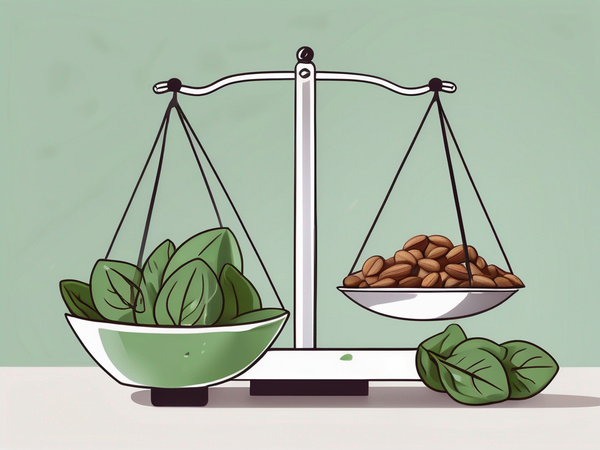You cannot just eat less and lose weight. The actual weight loss formula is more complex than it looks. There are several important factors at play that lead to successful weight loss management. Want to know what those factors are? Read along.
Top 5 Factors for Better Weight Loss Management
Here are the top 5 factors for better weight loss management
1. A Healthy Diet
A healthy diet can have a significant impact on your weight. No wonder why trainers always say, "abs are made in the kitchen." The nutrient-rich whole foods offer your body the nutrients and energy it requires while fast/fried foods or sugary foods wreak havoc.
So, if you wish to lose weight, go for a healthy diet that is rich in healthy fats, proteins, fibre, and the nutrients you need for the day.
2. Drink More Water
That might sound like a no-brainer, but it works. Consuming more water promotes a thermogenic stage, which enhances your metabolism. This rise in metabolism helps your body burn more calories in less time and thus helps you effectively lose weight.
According to a study, middle-aged and older adults, after consuming water (500 ml) prior to a full hypocaloric meal, reported a greater weight loss as compared to the individuals who opted for a hypocaloric diet only.
Additionally, staying hydrated will help you put down unnecessary cravings to eat unhealthy food. It's because often, our body mistakes thirst for hunger.
3. Exercise More & Sweat
Who doesn't know that exercise helps lose weight? Still, not many of us are habituated to including exercise in our daily routine.
Exercising more will help you sweat more, which means you'll burn more calories. Well, this is one way of losing weight. Another way is by including a little bit of resistance training. By doing that, you'll be able to build muscles, which in turn will speed up the fat and calorie burn. And that leads to weight loss too.
4. Sleep Well
Although you may not know, the amount of sleep you get decides how your body will function when you're awake. Strange, right? But that's how it is. If you get quality sleep for at least 8 hours, you're more likely to exercise or hit the gym.
Moreover, research says that sleep deprivation might lead you to choose foods that promote weight gain. It's because poor sleep impacts your brain's ability to regulate your appetite.
5. Try Reducing Stress
Stress is the reason behind several health problems such as high blood pressure, cardiovascular issues, and poor digestion. And sadly enough, it also leads to weight gain. How?
Well, stress leads to the secretion of cortisol (stress hormone), stimulating carbohydrate and fat metabolism. This causes a surge of energy in your body. While you may think of this as a positive response, it can increase your appetite and craving for sugary, salty, and fat-rich foods. And all this means more weight.
So, make sure to always keep your stress levels low. You can do this by including yoga or morning meditation in your routine. You can also go for some calming music if you like.
While the above factors can help you successfully lose weight, there's something more reliable and effective. What's that? Burn Slow and Apple Cider Vinegar with Garcinia Cambogia and Pomegranate by Wellbeing Nutrition.
Burn Slow, from Wellbeing Nutrition, is a scientifically developed delayed-release supplement meant for weight loss management. This supplement comes with L-carnitine and plant-based slow-release beadlets along with caffeine and chromium. With these ingredients packed in a capsule, you can expect:
- Fat Loss
- Increase in Satiety or Fullness
- Improved Muscle Recovery
- Better Metabolism
- Boost in Focus
- Better Weight Loss Management
All you need is one capsule each day post-lunch or breakfast, and you won't have to search the internet for "how to lose weight."
Another reliable and more effective solution for losing weight is Apple Cider Vinegar with Garcinia Cambogia and Pomegranate. This supplement from Wellbeing Nutrition carries the goodness of golden and red Himalayan apples in the form of ACV along with pomegranate and Garcinia Cambogia.
Apple Cider Vinegar with Garcinia Cambogia & Pomegranate can help you:
- Enhance Weight Loss Management
- Boost Digestion
- Improve Metabolism
- Increase Hydration
- Support Skin Health
- Enhance Heart Health
Apple Cider Vinegar with Garcinia Cambogia & Pomegranate is easy to consume, as all you have to do is drop one tab in a glass of water and wait for it to dissolve. Within 2-3 minutes, you can gulp down the goodness of pomegranate, ACV, and garcinia Cambogia.
Wrapping Up
Weight loss management is not that hard. You just need to know the right factors in play, just like the ones mentioned above. So, if you're fed up with searching for how to lose weight on the internet and want something effective, try the aforementioned 5 tips. Also, make sure to include Apple Cider Vinegar with Garcinia Cambogia and Pomegranate along with Burn Slow for even more effective weight loss management.
References
Leidy, H. J., Clifton, P. M., Astrup, A., Wycherley, T. P., Westerterp-Plantenga, M. S., Luscombe-Marsh, N. D., Woods, S. C., & Mattes, R. D. (2015). The role of protein in weight loss and maintenance. The American journal of clinical nutrition, 101(6), 1320S–1329S. https://doi.org/10.3945/ajcn.114.084038
Dennis, E. A., Dengo, A. L., Comber, D. L., Flack, K. D., Savla, J., Davy, K. P., & Davy, B. M. (2010). Water consumption increases weight loss during a hypocaloric diet intervention in middle-aged and older adults. Obesity (Silver Spring, Md.), 18(2), 300–307. https://doi.org/10.1038/oby.2009.235
Cox C. E. (2017). Role of Physical Activity for Weight Loss and Weight Maintenance. Diabetes spectrum: a publication of the American Diabetes Association, 30(3), 157–160. https://doi.org/10.2337/ds17-0013
Greer, S. M., Goldstein, A. N., & Walker, M. P. (2013). The impact of sleep deprivation on food desire in the human brain. Nature communications, 4, 2259. https://doi.org/10.1038/ncomms3259
Kulkarni, S., O'Farrell, I., Erasi, M., & Kochar, M. S. (1998). Stress and hypertension. WMJ : official publication of the State Medical Society of Wisconsin, 97(11), 34–38. https://pubmed.ncbi.nlm.nih.gov/9894438/
Dimsdale J. E. (2008). Psychological stress and cardiovascular disease. Journal of the American College of Cardiology, 51(13), 1237–1246. https://doi.org/10.1016/j.jacc.2007.12.024

























